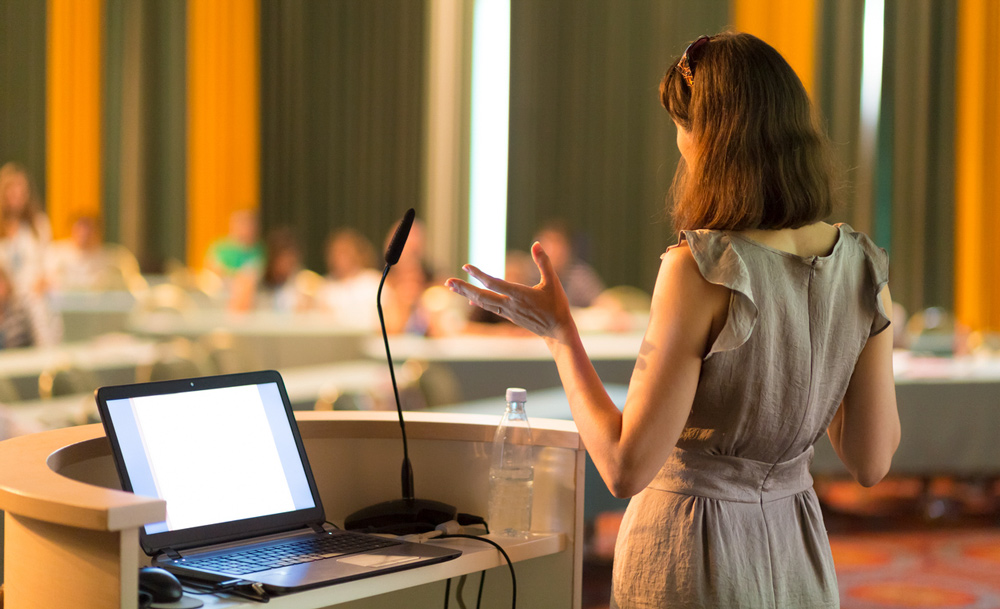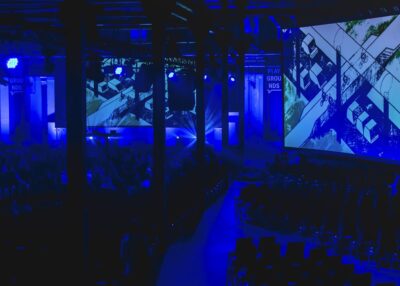How to Leverage Your Event Speakers for Brand Awareness
When planning an event, there are so many factors that have to be accounted for. Location, accommodations, decor, entertainment, and staffing are all necessary concerns, no matter the type of event. These details directly contribute to the overall success and audience engagement you’re able to elicit.
Public speakers are often asked to give keynote addresses at events to help connect and promote new plans, encourage actions, or just get a crowd excited about being in attendance. Leadership summits, educational seminars, sports/coaching camps, or technology roll-outs are all examples where a speaker can help an audience understand an overarching set of ideas.
|
Request your venue seating map We build an unlimited amount of maps for |
When searching for the right speaker or talent, though, how do you make sure their presence will improve your event? Audience engagement at events can often hinge on their connections with the speaker(s) you hire. Equally, the right speaker for an event can draw a crowd, simply based on their reputation.
So, how do you use that crowd reaction to your advantage?
How can you be successful in leveraging event speakers and their crowd appeal to improve your events?
TIP #1: Finding your event talent
Finding the right speaker to boost your event is paramount to its success. You want someone impactful, yet personable. Equal parts are intelligent, experienced, and relatable.
You also want to consider who your primary audience will be for the event. It may seem obvious, but a speaker who doesn’t connect with your audience is not good for the event. Make sure their information and demeanor match your expected demographics.
It's beneficial to scout out your talent ahead of time.
-
Attend an event at which they’re speaking
-
Watch a video of their past performances
-
Read up on their bio online or reviews of past attendees
-
Ask industry professionals their opinions
Once you’ve determined the speaker and/or talent you’ll be hiring, begin to tailor your marketing and advertising around their public persona or the material which has led to their prominence.
If you’ve hired a motivational speaker, for instance, work to create an event which focuses on three or four key points of their motivational talks. Be careful to tease just enough, without giving away their performance. Then, double down on the language relating to the speaker for the event, in the advertisements and promotional material.
TIP #2: Expanding your reach online
One of the most useful tools for networking and connecting people is social media. Different online platforms allow cross-pollination, which often defies target audience indicators.
When planning events and hiring the talent who will appear, social media can meet a few important needs. First, advertising and marketing your event on social platforms helps expand your broadcast. You’ll be able to cover certain demographics by design, and reach others by proxy. The advertising is usually free or minimally priced and the sharing, liking, and commenting from individuals helps stimulate the ecosystem of social media.
Social media also does a great job of measuring engagement and interest. You can introduce an idea, a message, or certain individuals or groups through posts and gauge your audience’s reactions. This can be a strong indicator of how an event audience may react. This is also another example of leveraging event speakers’ notoriety for your event’s benefit.
You can also follow people you are considering for speaking or entertainment on their social media pages to see what their crowds look like. What are the regular conversations and comments appearing on or pertaining to their pages? Social posts can really paint a distinct picture of a person’s thoughts and values. A little research can tell you a lot about your next speaker.
Once you’ve contracted a speaker, your social media powers can combine to create even more reach and buzz. With both you and your talent promoting an event, you’ll build networks of engagement between followers. These organic connections often grow to become dedicated fans and followers.

TIP #3: Don’t forget the media
One of the most powerful tools of social media marketing and advertising is the inclusion of pictures and videos with posts. Words are always important, but visuals capture attention. A video can create even more engagement because the speaker is they naturally appearing and sound. If you’re able to post previously recorded performances or speeches, the audience can feel they are getting a preview or teaser for your event.
Just think of the many videos online which come from the crowd’s point of view. People love to replay what they witnessed, and those who couldn’t make an event can still feel like they know a little about what happened. The same is true for promotional videos. By showing just enough of your guest speaker or talent in videos and pictures, your crowd will connect with them while still wanting more from a live presentation.
If you can, set up your own videos or interviews with the speaker. Get them to talk and use those snippets in social posts to keep your audience interested. Or, if you can, create radio and TV spots with the speaker or talent. Let their star power work for your promotional needs.
TIP #4: Setting focal points
When you’re ready to start promotions for your event, you should have a plan for how you’ll roll out the information. Too much at once and you’ll overload people. Not enough and they’ll lose interest. By planning your advertising, social media blitzes, and use of print media, you’ll be able to keep a steady stream of promotional information flowing. By using your talent as an advertising tool, you’ll be able to leverage their notoriety and crowd recognition to draw more people in.
Make sure to focus on:
-
What is the purpose of the event? What are you trying to convey or promote? Make it fairly clear for your audience.
-
Why is this speaker or talent going to be at the event? What is their connection to your event? What is their backstory? Show off their fame along with their relevance.
-
Who are you advertising to? What’s your target audience? Who’s your secondary audience?
-
When and where will the event happen? Give simple information, so there is no confusion or frustration from your audience.
-
How can attendees get more information? Don’t make this too challenging or people will lose interest.
The addition of a notable or high-profile speaker can make quite a difference to your events. Using the excitement garnered from their appearance for advertising is a savvy promotional tactic. Make sure you’re able to get the most out of your talent before and during the event by leveraging event speakers’ crowd appeal.
|
Extensive reporting and real-time alerts Make tracking and analytics easy with |







